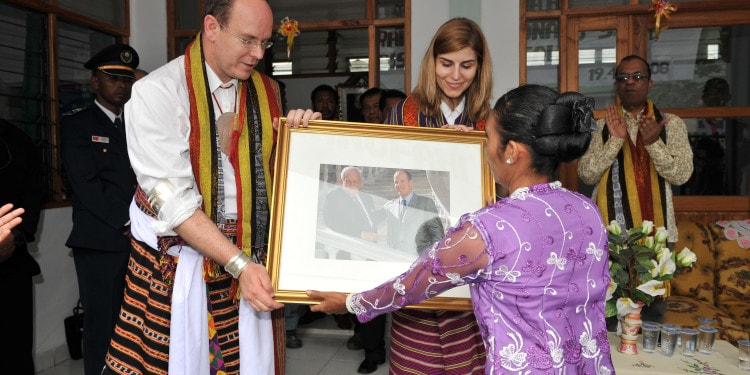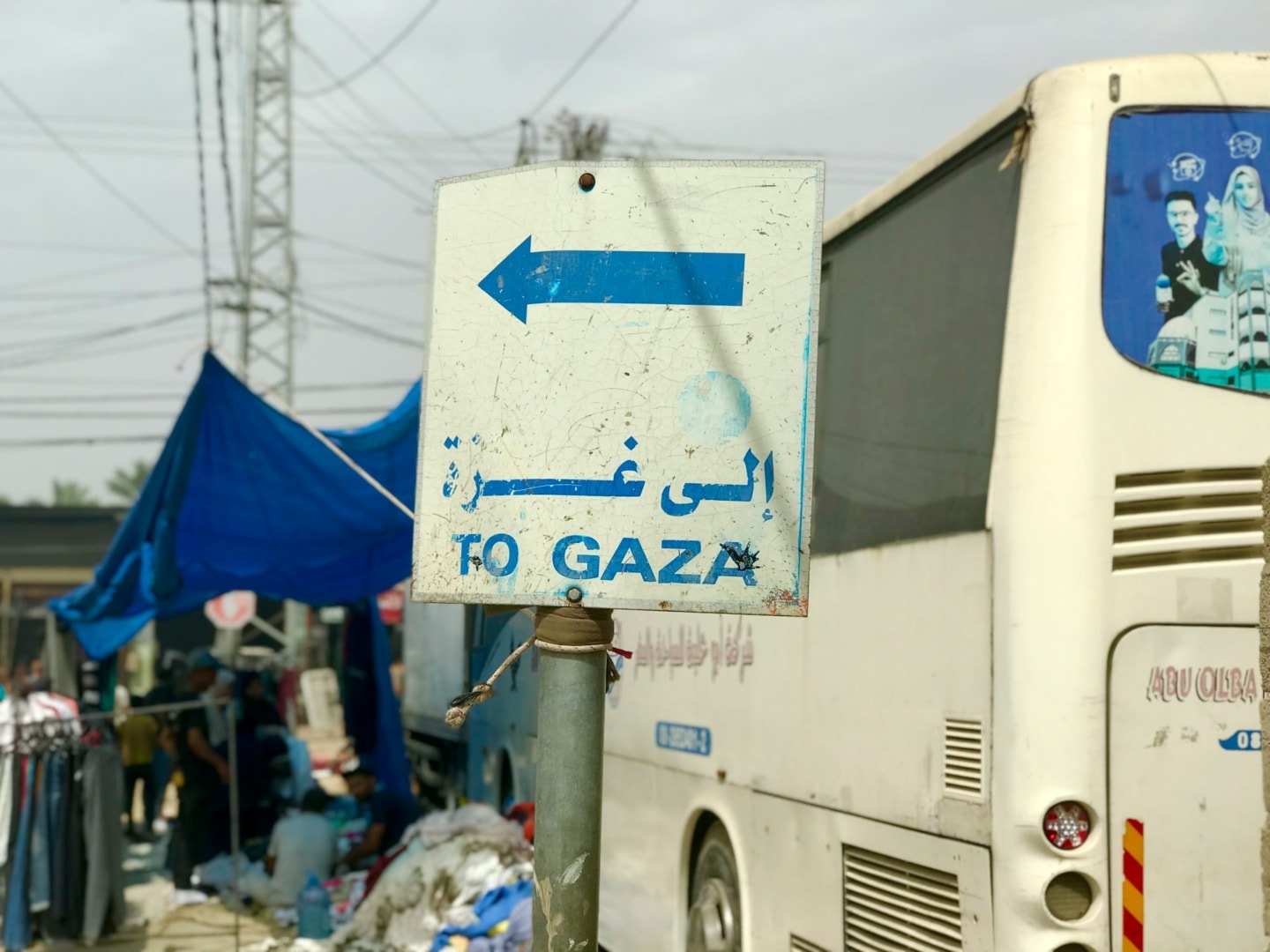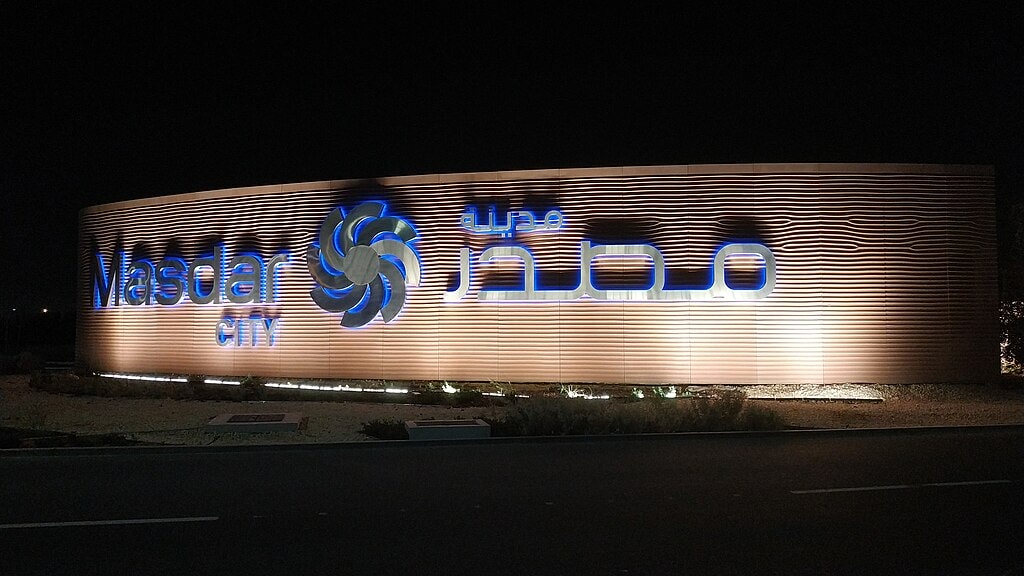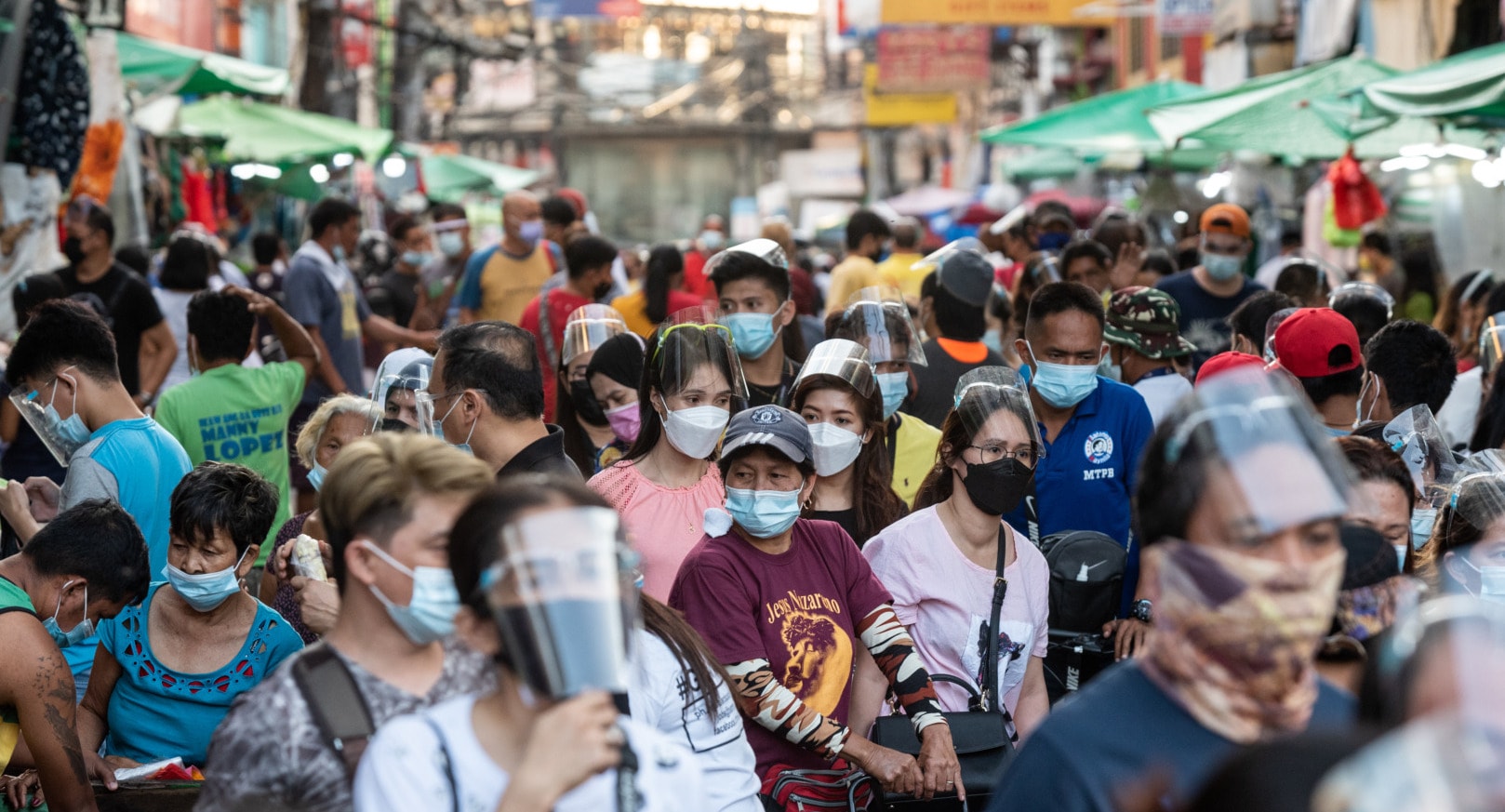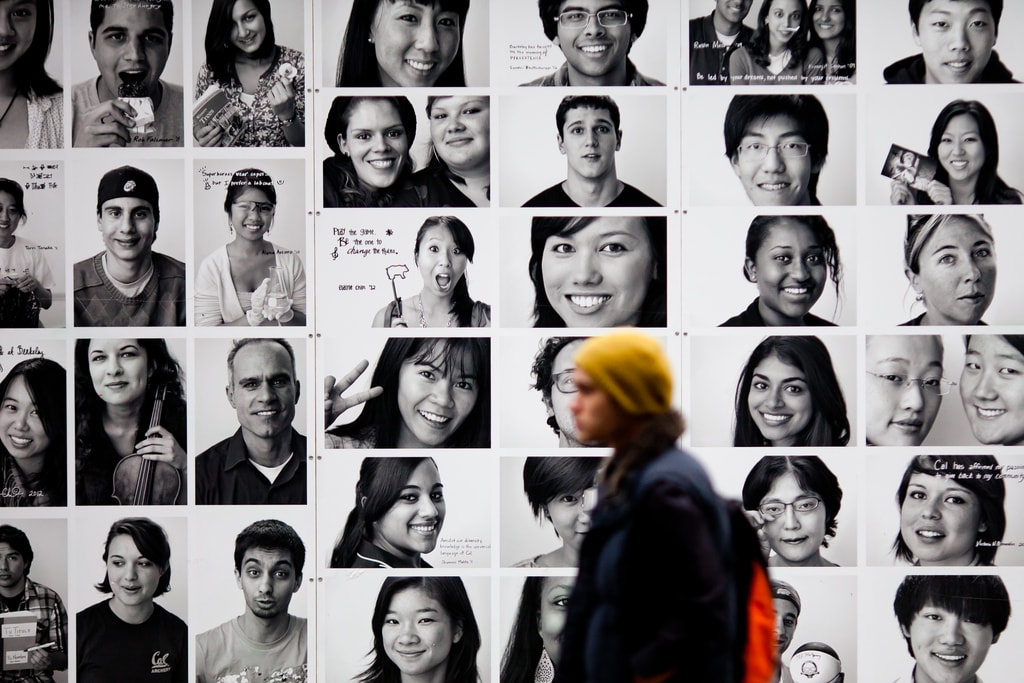The original mission of Foundation for Post Conflict Development (from now on FPCD), established in 2005, was to fulfill the Millennium Development Goals in the context of post-conflict situations. It was then, as it is now, a non-governmental organization that places no judgement on any conflict, nor the manner in which it was resolved. The FPCD sets itself apart from conflict resolution – leaving that to the experts – and rather focuses on concrete development projects.
At the time of the founding of FPCD, I personally was afraid that after the large international organizations completed their work, were downsizing, even leaving some post-conflict areas, that they would be forgotten even though development assistance was still needed.
The FPCD was to be a bridge to help keep focus on the people living in societies dealing with post-conflict insecurity.
The FPCD was founded primarily due to my experiences with the United Nations. I observed the elections in Fiji, I helped manage the World Summit for Sustainable Development in South Africa and I was present for the negotiations and birth of the Millennium Development Goals. However, the single moment that defined my life and inspired me to gather all of these experiences together and personally do something about it, was my time spent in Timor-Leste as a Protocol Officer, preparing the Restoration of Independence.
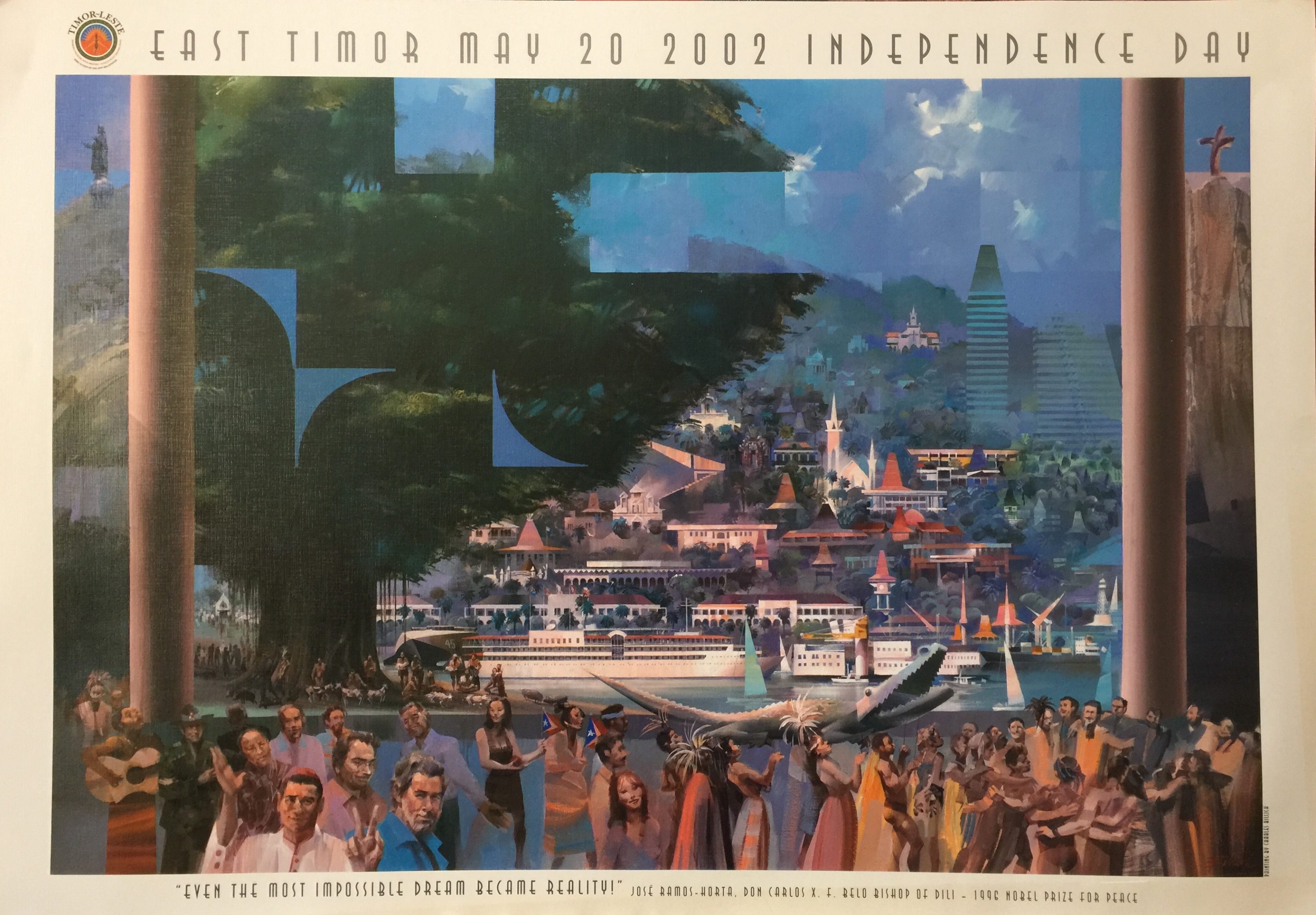
In the Photo: East Timor May 20, 2002 Independence day. Photo Credit: Charles Billich
Most people know the history of this gem of a country located in Southeast Asia and for a brush-up, it can be found elsewhere. What needs to be known is that when I landed in Dili, no one could prepare me for what I saw and experienced. As a young staff member, the United Nations was everywhere, even stamping my UN Laissez Passer while the country was still in crumbles from the devastating ‘scorched earth’ and conflict. However, the landscape I saw, and the people I met, melted my heart. I couldn’t believe that while every single Timorese had suffered a great loss of brothers, sisters, fathers, mothers, and material possessions, they were all so happy and hopeful for the future.
Related Article: “SDG 3: HEALTH AND WELL-BEING IN POST-CONFLICT COUNTRIES“
Creating the FPCD was in part a tribute to them and where our first actions took place thanks to the generosity of Prince Albert of Monaco. He was the only person I knew at the time who could help. And He did through The Monaco Red Cross with the creation of the Prince Rainier III Maternity Clinic that He inaugurated in 2008. Through many Monaco-based entities, including the Princely Government, we were able to help overcome the challenges of poverty alleviation in a modest way. The 7-year Reforestation and Family Income Project created kitchen gardens, shade trees for coffee plants, fish ponds, chicken coops and brought water and sanitation to remote communities in Ermera.
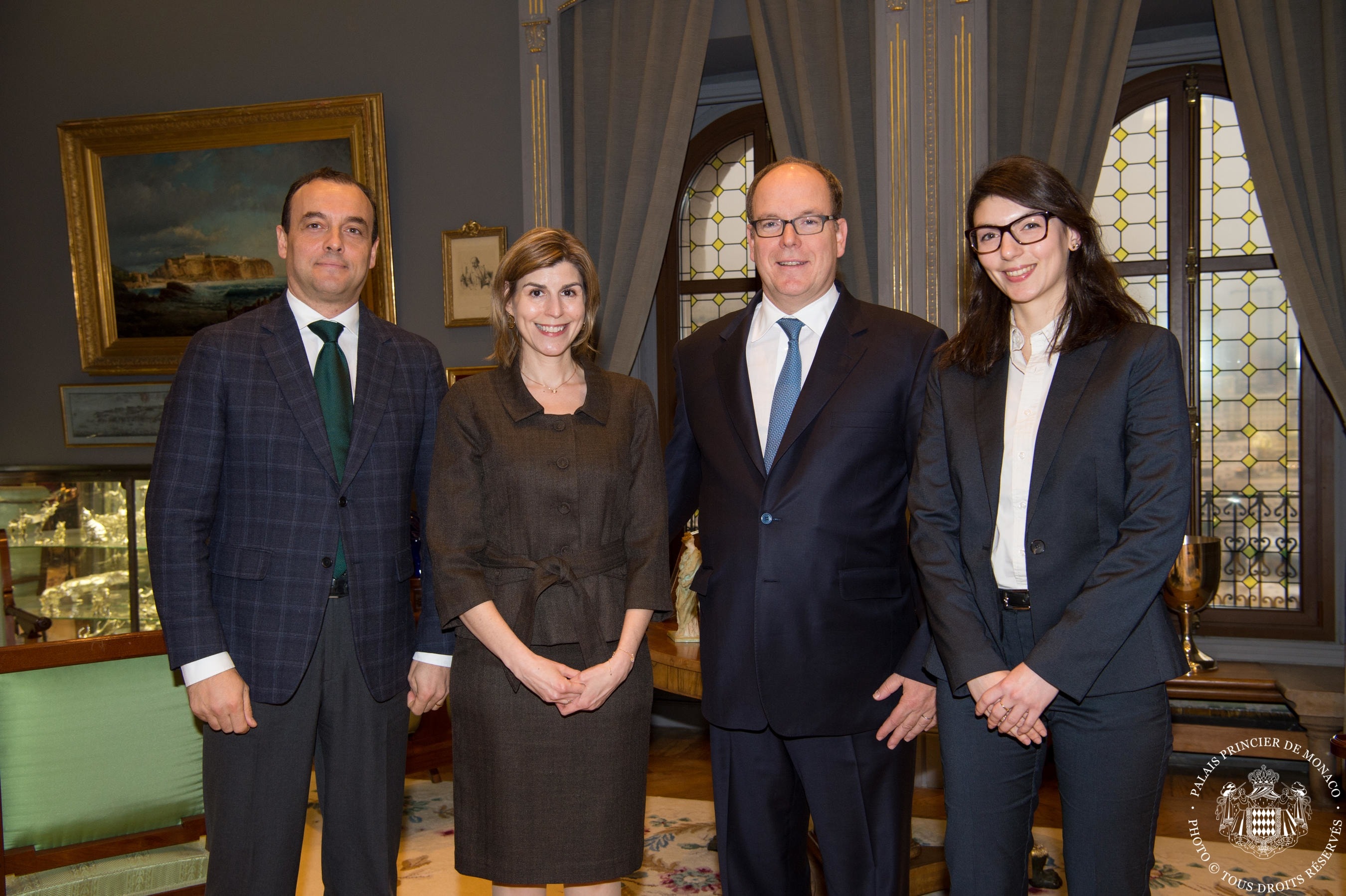
IN THE PHOTO: Palace of Monaco, HSH Prince Albert II, the High Patron of the Post-Conflict Development Association of Monaco meets with Founding Members, Marco Fiorese, Claudia Abate-Debat and Emmanulle Robino PHOTO CREDIT: Palace of Monaco
A couple of youth centers were also built and a second maternity clinic in Oecussi, and a Sandalwood Park. Each development project was in full harmony with the Government’s Strategic Plan and involved community members at every stage.We rely heavily on partnerships: with governments, with civil society organizations and other like-minded institutions. A lot of work has been “bridge” work, whereby funding from a donor went to a recipient directly and not through the FPCD.
In United Nations jargon, all of this would be labeled as Triangular Cooperation: an American NGO, inspired a Monaco institution to provide development assistance to a Country of the South. However, while working on such issues, this is not at all something that is at the forefront of one’s mind, especially due to the personal nature of the work. Moving forward, the FPCD was once again able to create a women’s health and training center in St. Louis de Sud, Haiti in 2016 thus expanding our work to a new country.
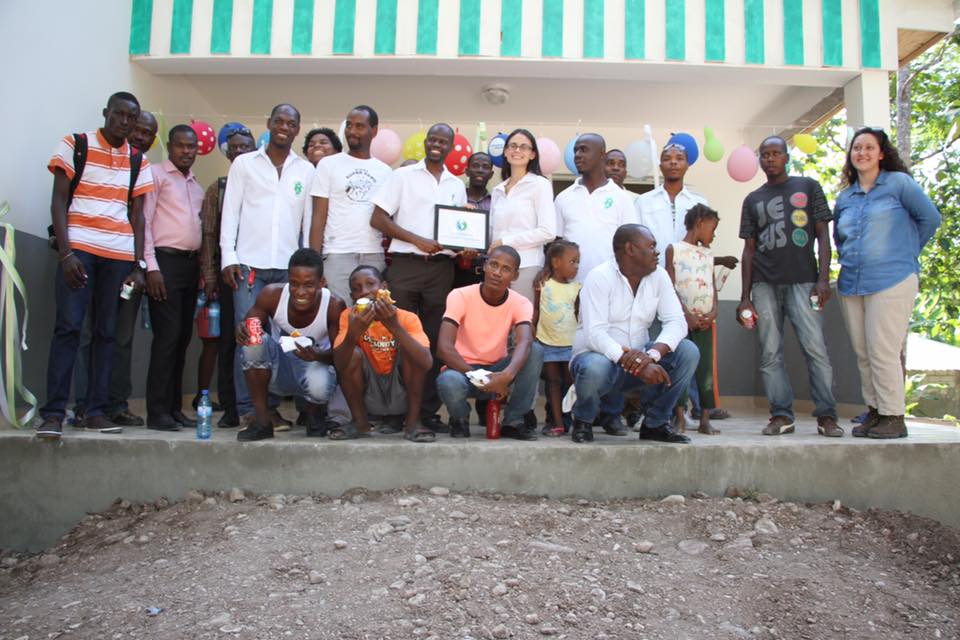
In the Photo: Symbolic handing over the key to St. Luke’s Foundation for Haiti, local implementing organization of the Womens Health and Training Center in St. Louis de Sud. Photo Credit: FPCD
With the expansion came also the refining of our work. After an honest look inward and assessment of strengths and capacities, FPCD simply couldn’t be as large as we would have wanted it to be. Instead, we are rebranding as a boutique NGO with a new logo, new mission and new plans.
FPCD envisions a world where post-conflict communities have access to maternal health and youth programs, promoting empowerment of women and children in order to support sustainable development.
Our refined mission is two-fold: the first is empowering women through creating access to maternal health services, improving maternal health culture, and providing training opportunities. The second is to empower and engage youth by creating recreational spaces that promote inclusion, support education, and encourage positive participation in society.
Three especially exciting initiatives that reflect this are as follows.
- The Post Conflict Development Association of Monaco was created under the High Patronage of HSH Prince Albert II. This is a separate legal and administrative entity from the FPCD in the USA, however is united by the same mission. It will have its own agenda and projects in harmony with the FPCD.
- The launch of the Midwife Capacity Building Project will take place in the fall of 2017. Since the FPCD has been successful in creating three maternity clinics in Timor-Leste and Haiti. Midwives in each of these countries play an important role in interacting with the community of women, encouraging them to give birth in a medical facility. They also follow the pre and post-natal health of women and families. In developing countries, midwives are crucial to the success of childbirth and their skills will benefit from advanced training in Monaco. This will be in partnership with the Centre Hospitalier Princesse Grace, the Post-Conflict Development Association of Monaco and the Fondation Sancta Devota.
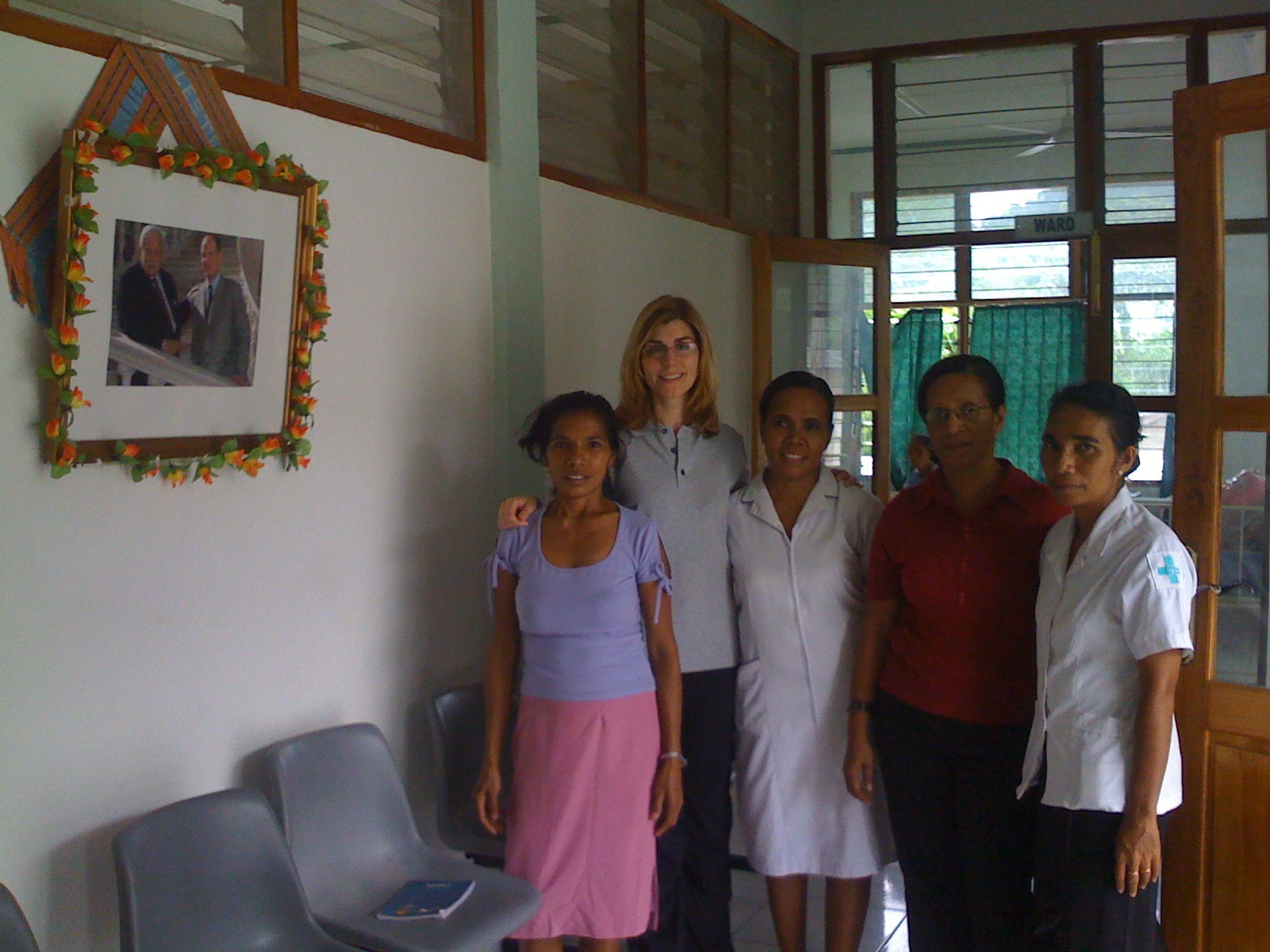
In the photo: Executive Director visits midwives at Prince Rainier III Clinic in Same Timor-Leste 2009. Photo Credit: FPCD
3. On the occasion of the 15th Anniversary of the Restoration of Independence, the FPCD will launch the On-Line Institute for Post-Conflict Development since education is a pillar in the post-conflict setting. The Institute for Post-Conflict Development is housed on the FPCD website and is accessible, for free, to anyone with internet access. The FPCD website is a platform for education outreach and brings interested people closer to understanding the needs of post-conflict nations.
With fingertip technology (ie tablet/smartphone), the virtual institute will grow. Through Two-minute Tutorials, presentations on post-conflict development will be made available to visitors in a savvy and personalized way. The video tutorials will be effective due to their brevity on a single topic and/or in concert with the entire collection. After watching one or more of the tutorials, the visitor will have a new perspective on an aspect of post-conflict.
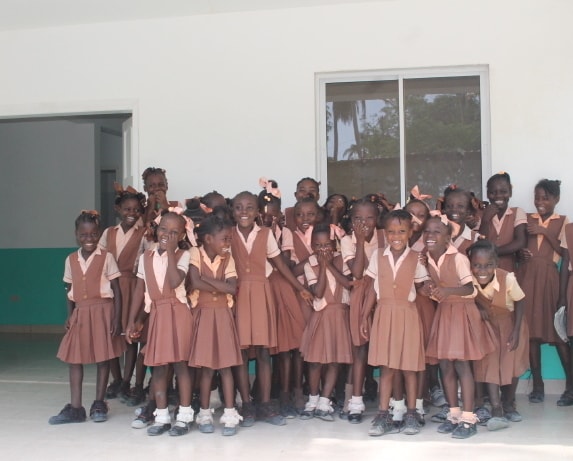
In the Photo: Local School Girls in St. Louis de Sud in front of Women’s Health and Training Center Photo Credit: FPCD
Examples of tutorial subjects are: What is it like to live in a post-conflict country? How is post-conflict development different from conflict resolution? Each two-minute tutorial will be transcribed in written form and collected into a publication to be distributed at a later date.
When I think back to those frantic days in the run-up to the Restoration of Independence in 2002, it reminds me that the FPCD still has an important role to play to help keep the needs of post-conflict countries at the forefront.
Even small States, when banded together, can have a large impact and an example of their collective work is reflected in the newly revised United Nations Sustainable Development Goals.
The same is true for the FPCD, who must adapt to the needs of post-conflict countries in a sustained way as to ensure that knowledge on operating in countries facing post-conflict challenges is upheld and constantly being built on. The tutorials of the Online Institute hope for a large impact to help keep the issue of development in post-conflict countries, on target, on point and for the benefit of our collective humanity. In this spirit, we invite anyone who wishes to submit a tutorial. The FPCD welcomes submissions for the Online Institute. You can email me directly: cabate@postconflictdevelpment.org
 The Mission of the FPCD is twofold: to empower women through creating access to maternal health services, improving maternal health culture, and providing training opportunities. To empower and engage youth by creating recreational spaces that promote inclusion, support education, and encourage positive participation in society. We link Post-Conflict Countries with good-willed partners to concretely address these needs.
The Mission of the FPCD is twofold: to empower women through creating access to maternal health services, improving maternal health culture, and providing training opportunities. To empower and engage youth by creating recreational spaces that promote inclusion, support education, and encourage positive participation in society. We link Post-Conflict Countries with good-willed partners to concretely address these needs.


